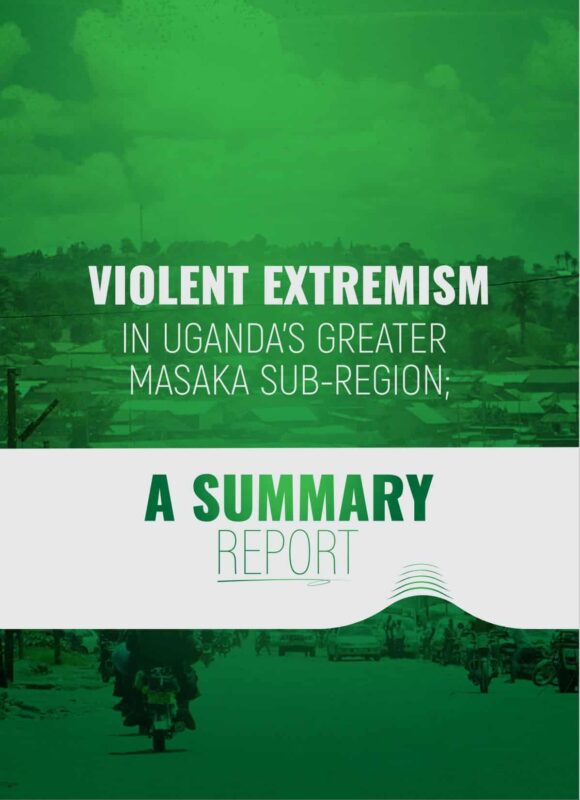Kampala, UgandaAfter a four-hour drive from the Ugandan capital, we arrived at the Greater Masaka Region along beautiful Lake Victoria. Though picturesque, our purpose was far from tourism.
We joined about 40 community members who gathered to continue their efforts to learn and better understand the drivers of extremismo violento. I was impressed that most were women. While each member spoke passionately about the need for social cohesion and how to identify the triggers of violent extremism, I was stunned when I heard a few comments.
“Is it true that Muslims want to kill Christians?” one woman asked of another participant. “No,” he responded to her question. “We want to live peacefully together – just like you.”
Though the community members had been peacefully and productively working together during the past year to improve their knowledge and understanding of violent extremism, as individuals they continued to hold on to myths and disinformation about each other. The same myths that allow violent extremists to exploit misperceptions and perceived grievances, the same misunderstanding that allows them to move in communities, muitas vezes, undetected.

Does this mean that these training sessions were a failure? No. The community members volunteered to be part of these meetings, and their participation was civilized and demonstrated respect for each other. It does point to the fact that countering violent extremism is not a short-term endeavor. Challenges like these are never easy fixes, they denote the need to be locally led and require local-level investments.
The goals of my trip during the spring of 2022 to the communities of Mpigi, Masaka, Kalungu and Lwengo was to observe and analyze field activities as a follow up to a study on violent extremism conducted by our sister organization, the non-profit Aprendizagem Criativa.
Contracted by the U.S. State Department in October 2020, Creative Learning looked at the two-year, two-phase project called Strengthening Resilience Against Extremism, which is part of a series of seven community based pilot in four districts in Greater Masaka. Creative Learning’s study included 95 interviews with key informants, incluindo 18 who were members of the Allied Democratic Forces, considered a terrorist organization by Uganda’s government. Seventy-seven interviewees have knowledge of violent extremism, por exemplo, have an affiliation or family member directly impacted by it.
Creative Learning observed that, while knowledge of violent extremism has increased, the level of knowledge is uneven. In Lwengo, por exemplo, community dialogue participants understand violent extremism, including the drivers, its definition and impact. Many were able to describe personal experiences. In the remaining districts, the dialogue participants still debate their grievances with the government.
As I observed the community dialogues in the spring, it became clear that security forces stifle dialogue, turning these forums into lectures that are not appreciated by attendees. Families of former members of the Allied Democratic Forces are dubbed ‘permanent suspects’ by the government. When a security incident occurs, these family members are the first to be questioned by authorities. This stigma is problematic – but it can be reversed.
Heavy-handed tactics by authorities, coupled with the ongoing misconceptions that neighbors have of each other, are the type of issues violent extremist organizations can and will exploit. Além disso, our study is rich with details about awareness of violent extremism and how these armed groups operate, including their recruitment of women and children, integrating themselves into the local economy and more. These are all areas that are ripe for improvement as community members are eager to participate.
The project includes seven pilot micro-projects all allocated to local actors, and all addressing community identify P/CVE needs in their respective districts. These have demonstrated increasing awareness of the violent extremist problem in the Greater Masaka Region – a necessary first step for effective P/CVE.
Reitor Piemonte is Creative Associates International’s Senior Advisor for Armed Group and Reintegration issues.